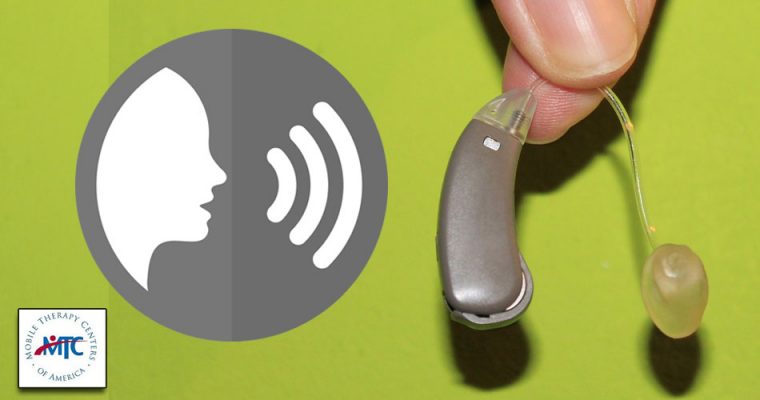

Every year, the American Speech-Language-Hearing Association (ASHA) acknowledges May as Better Hearing & Speech Month (BHSM). The purpose of BHSM is to raise awareness about communication disorders, which in turn can provide life-altering treatment. Every year a theme is created by the ASHA and this year’s theme is “Communication at Work.” There are many resources available to help people celebrate during the month of May.
Being able to “communicate” is important for humans so they can successfully convey thoughts, opinions and ideas to others. At Mobile Therapy Centers, we feel it is important for teachers and parents to understand what Speech-Language Therapists do, and how difficulties in any of these areas can affect kids academically. There are many different areas involved in speech and language skill development and below are some things to look for:
Articulation: Articulation errors refer to difficulty producing various sounds. All speech sounds are developed at different ages, so a speech screening can help determine whether the speech errors a child is making are still appropriate. Articulation and phonological errors can also impact self-confidence as well as literacy.
Oral/Motor Skills: Difficulty controlling the articulators (lips, tongue, jaw) due to muscle tone, movement or sensation. These students may have speech production difficulties but these are also the students who are drooling, have difficulty chewing, are coughing or clearing their throats while eating and drinking.
Voice: Noticeable differences in vocal pitch, quality and volume. These can be your students who sound hoarse, breathy, etc…all the time.
Dysfluency (Stuttering): Speech interrupted in its forward flow by repetitions, prolongations or blocks (silent pauses while trying to say a word). This can impact a child’s participation in class as well as vocational/career choices in the future.
Auditory Processing: Difficulty recognizing subtle differences between sounds in words. For example, to a child with an Auditory Processing Disorder, “Tell me how the chair and the couch are alike” may sound like “Tell me how a cow and hair are like.” These are your students who have difficulty following directions, ask for repetition, are easily distracted, have difficulty with reading and spelling, have difficulty following conversations, difficulty with memory, etc…
Semantics: This refers to the meaning (interpretation and use) of language. All areas of communication (listening, speaking, reading and writing) are affected by weakness in semantic skills and therefore have an impact on all areas of the curriculum. Semantics includes vocabulary, definitions, concepts, multiple meanings, categorization, comparisons, synonyms/antonyms, analogies. These are your students who use a limited number of words to express him/herself, have difficulty asking and answering questions, struggle to understand sentences containing figurative language or struggle following along and participating in conversations, etc…
Grammar/Syntax: Rules of word order and word combinations in order to form phrases and sentences. Deficits in this area can impact one’s ability to comprehend, analyze and produce language effectively.
Morphology: Understanding and use of the structure of a word (ex. Roots, prefixes, morphemes). These are your students who have difficulty using plural forms or verb tenses, using incorrect word order, leave out words or use a limited number of more complex sentences such as those that contain prepositional phrases.
Literacy: The ability to read and write. To become a fluent reader, one must master the early literacy skills of blending, segmenting, rhyming and fluently identifying all graphemes and phonemes. Sometimes these early literacy skills are masked in our younger students, but then appear as the children enter upper level academics. It appears in the upper grades because there are more unfamiliar words which requires the use of those early literacy skills to decode vs. using memory and picture cues as we can in the younger grades.
While Better Hearing & Speech Month not only creates awareness, it also helps to create acceptance. Being accepted is very important to school-aged children since school is where they spend a majority of their time and tend to meet friends. Feeling confident about yourself is also the key to making friends and by starting speech therapy early on, this will help with both communication and confidence.
To learn more about Speech Therapy Services and for a free consultation/screening call our office for details at 847-816-7200, email us at asktheteam@mtcus.com or visit us at https://mtcus.com.
Mobile Therapy Centers services include ABA Therapy, Speech Therapy, Occupational Therapy, Behavioral Therapy and Counseling. We see children at our clinic, at your home or at your child’s school/daycare making it convenient for you and your family.
We also provide Telehealth services for Mental Health, ABA Therapy, Speech Therapy, Behavioral Therapy and Occupational Therapy. In most cases, Telehealth is an approved service through your insurance company.